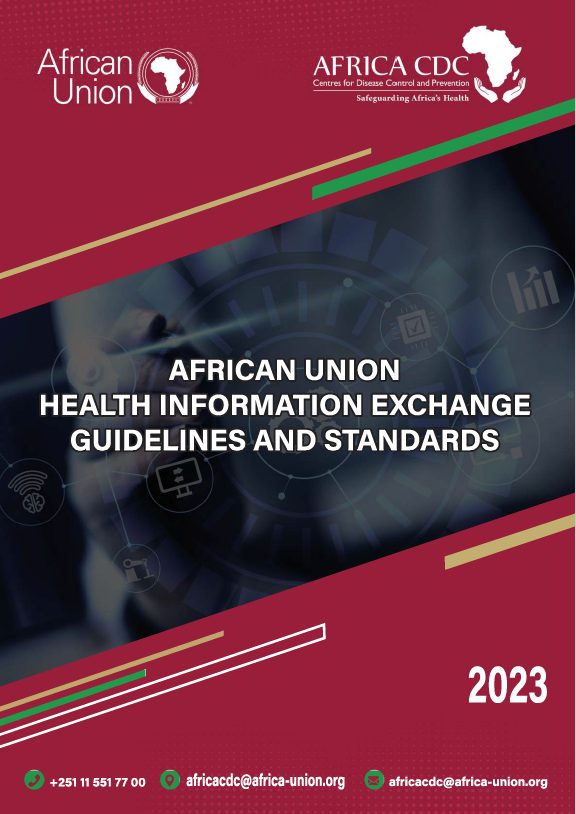Preface
The application of digital health technology is growing at a rapid rate in Africa, with the goals of improving the delivery of healthcare services and more effectively reaching out to remote and underserved communities. The lack of enabling guidelines and standards across the continent, on the other hand, makes it difficult to share data in a meaningful way across the continent.
Considering this, Africa Centres for Disease Control and Prevention (Africa CDC) established a task force of 24 members to provide expertise and guidance in the development of AU HIE guidelines and standards. Members of the task force were subject matter experts working in Africa and internationally on the collection, analysis, and exchange of health information. Some of these experts had been involved in previous consultations on defining Africa CDC’s health information systems strategy. A chairperson, co-chairperson, and secretary were elected to engage the task force members in different technical working groups.
A chairperson, co-chairperson, and secretary were elected to engage the task force members.
Three technical working groups were constituted to lead the drafting of the three sections of the document:
1. HIE Policy directions
2. HIE Standards
3. Implementation Use Cases
Following several virtual meetings and consultations, a draft document on AU HIE guidelines and standards was developed. The methodology employed involved the reviewing of scientific publications and governmental reports on HIE guidelines and standards in Africa; reviewing Internationally known comprehensive and robust data exchange standards; and incorporating recommendations from the Africa CDC HIE Task Force Members.
Additionally, the document was critically reviewed and validated by Member States in all AU regions through several validation workshops; West Africa (validation workshop took place in Senegal), Central Africa (Congo-Brazaville), East Africa (Rwanda), South Africa (Namibia) and North Africa (Mauritania) through validation workshops. Representatives of Africa CDC, Regional
Collaborating Centres (RCC), World Health Organization (WHO), West African Health Organization (WAHO), East, Central and Southern Africa Health Community (ECSA), and Economic Community of Central African States (CEEAS) were also invited to participate in the validation workshops. English, French and Portuguese versions of the document were prepared for the workshop participants to critically review and ensure alignment of stated HIE guidelines and standards with existing Member States’ national guidelines and standards. Following the validation exercise, comments and recommendations from MS were addressed and incorporated
accordingly.
